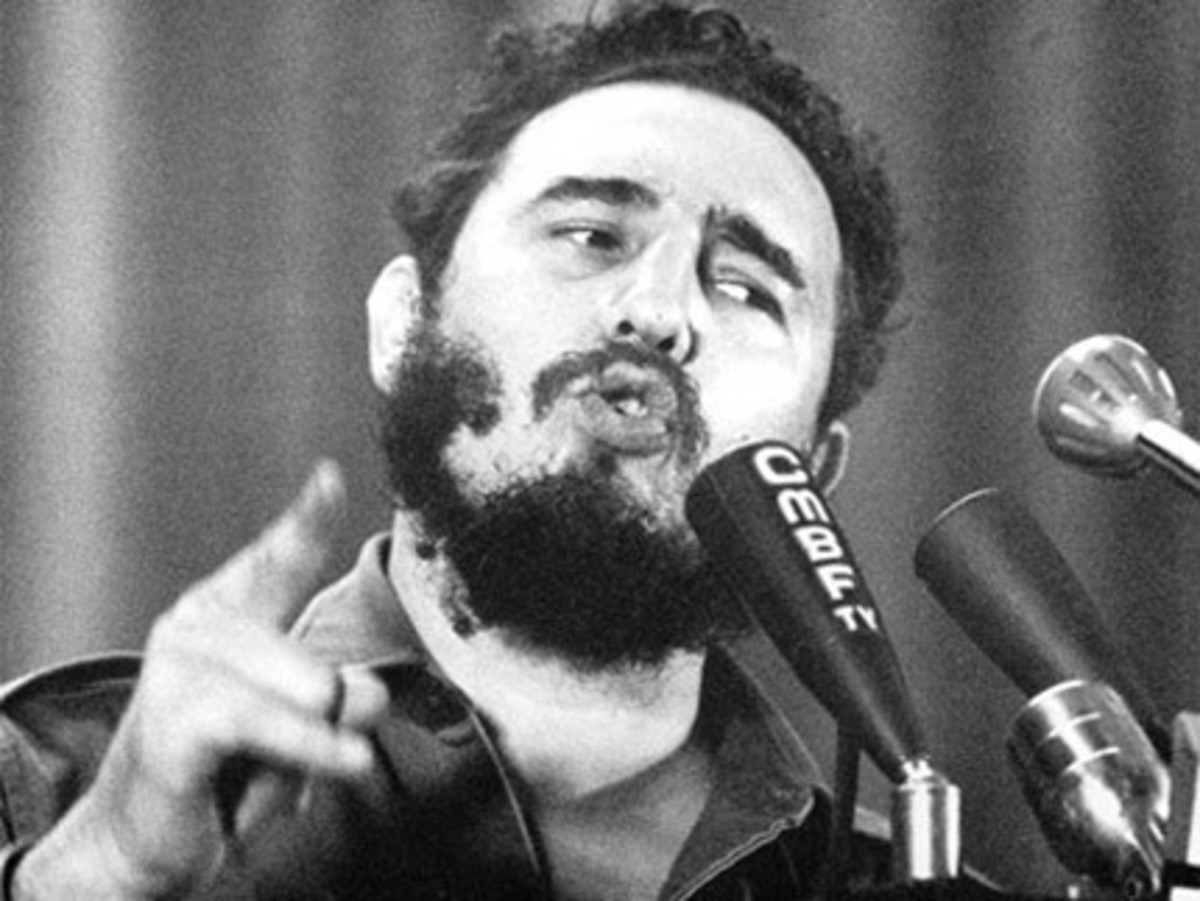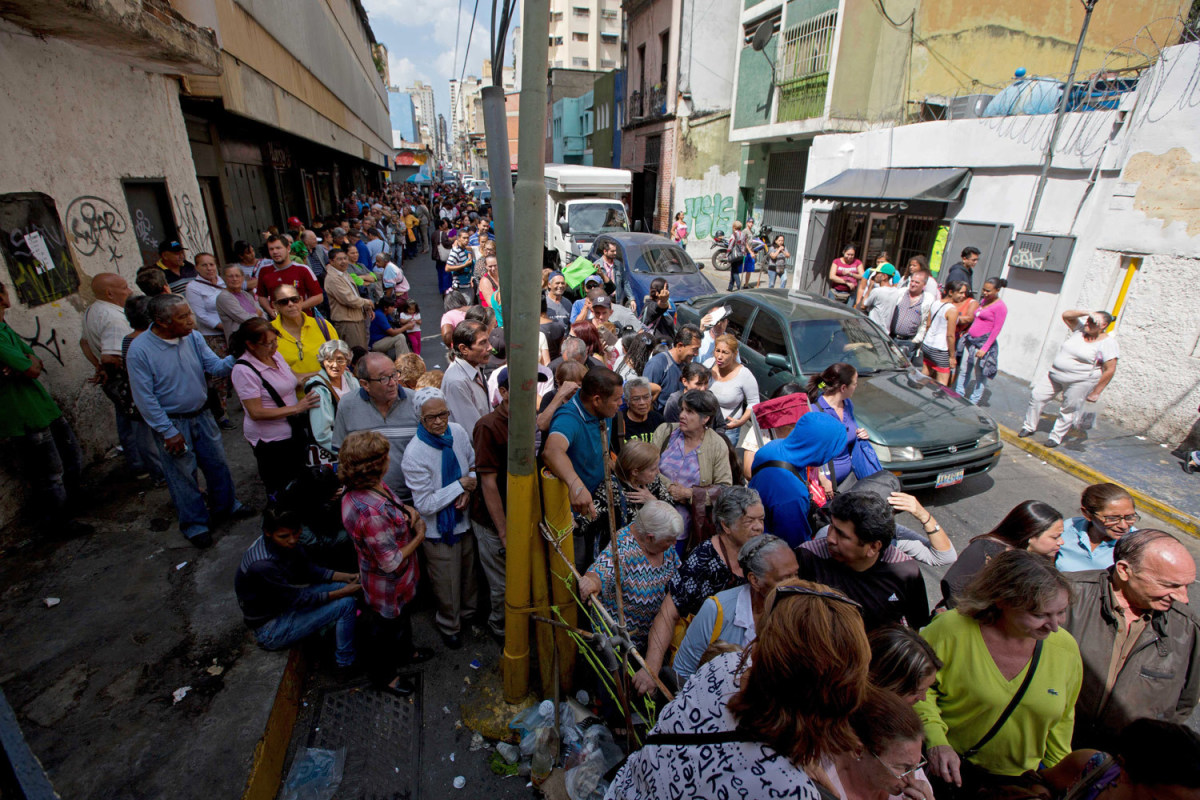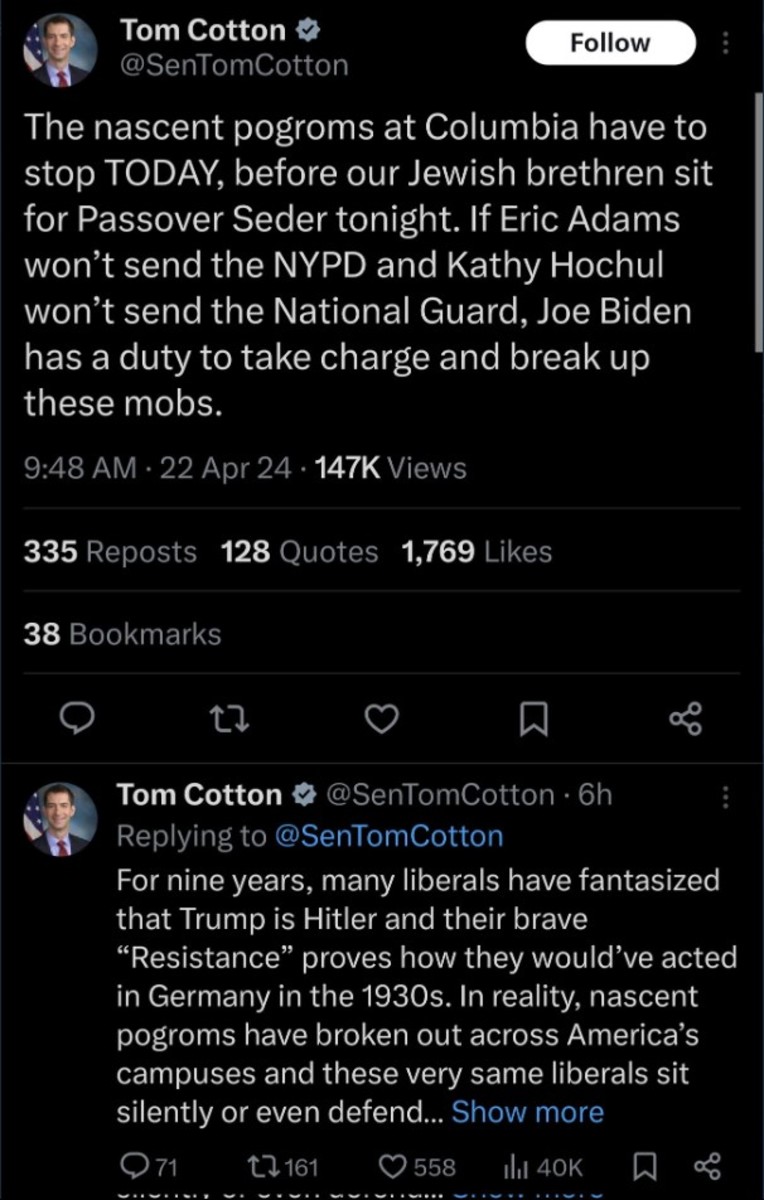Opening Cuba - Keep Calm and have a Cigar

Words of Wisdom from Unexpected Places
My oldest son and I are alike in a lot of ways. He inherited too many of my genes for his own good, both on the positive and the negative end of the chromosome spectrum. On the negative side of he DNA strand we are both incurable slobs and rather "indifferent," shall I say, about our personal appearance. On the positive side we both share a fascination for philosophy, history, and literature. Yes, we argue quite a bit about ideas and philosophy, but our arguments are mostly about petty semantic details, not about fundamental beliefs. All in all we think quite a lot alike even though we pretend not to, because when you get right down to it it's kind of embarrassing for a 21 year old to agree with his 50 year old Father.
About a year ago my son lent me a book called "The Illuminatus Trilogy" which he enjoyed quite a bit. It took me a long time to get around to reading the novel, but when I was finally able to unchain myself from my smart phone master and started reading it on my lunch break I found the story to be strange, at times hard to follow because it jumps around in time and perspective worse than a Tarentino movie, but ultimately fascinating and fulfilling because of the ideas it proposes.
What does this have to Cuba, you are wondering? Superficially nothing, I suppose, but the next to last appendix to the novel, which I read on the next to last day of 2014, deals entirely with dogma and its negative effect on human behavior. The subject of dogma is pertinent to the subject of Cuba because dogma has pretty much governed our relationship with the island nation over the course of the last 50 years. Here is what the Illuminatus Trilogy authors Robert Shea and Robert Anton Wilson so eloquently say on the subject.
"Every ideology is a mental murder, a reduction of dynamic living processes to static classifications, and every classification is a Damnation, just as every inclusion is an exclusion. In a busy, buzzing universe where no two snowflakes are identical, and no two trees are identical, and no two people are identical - and, indeed, the smallest sub-atomic particle, we are assured, is not even identical with itself from one microsecond to the next - every card-index system is a self-delusion."
The Illuminatus Trilogy
Dell Trade Paperback Edition - Page 791
The human race has been fighting wars over card-index systems for untold millennium, and we've been dickering over dogma with Cuba for the last 50 years. Isn't it time to chill out, make friends, sit down and have a cigar?
Weird, Disturbing, but ultimately Enlightening
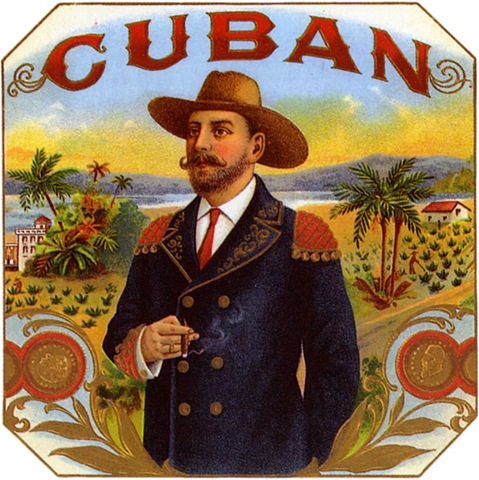
The Smoking Gun Issue and the Reaction
On December 17, 2014, US President Barack Obama and Cuban President Raul Castro announced that the United States would begin a process to normalize relations with Cuba. This announcement was the outcome of secret meetings in Canada that were mediated by Pope Francis, an action which I am sure will get the anti-Vatican conspiracy theorists in an uproar, if it hasn't already. The normalization process will not mean the complete lifting of the US economic embargo that has been in effect against Cuba since 1960, but it will ease certain travel restrictions, facilitate financial transactions, and establish a US embassy in Havana. For you cigar aficionados out there the most interesting component of normalization is that Americans will be able to import up to $100 worth of Cuban cigars, which was probably the proposal's deciding selling point. One thing that politicians on the right and left wings of the political spectrum can agree upon is that a good Cuban cigar is second to none.
A strong reaction to the proposed thawing of diplomatic relations with Cuba by anti-Castro zealots in Congress was expected and immediate. The normalization process was said by the proposition's opponents to consist of "mindless concessions," which some even labeled as "appeasement." Criticism came from both parties. The Democratic chairman of the Senate Foreign Relations committee said it would result in "...the hardening of the government's dictatorial hold on it's people" in Cuba. Senator Marco Rubio , perhaps the most prominent and vocal Cuban America to denounce the plan, called it "just the latest in a long line of failed attempts by President Obama to appease rogue regimes at all cost." Rubio cried out that the Cuban government has "...harassed, imprisoned and even killed its own people."
Using Marco Rubio's own criteria,therefore, let's take a look at pre-Castro Cuba, to see if human rights abuses in the from of the "harassment, imprisonment and killing" that the Florida Senator denounces really took a turn for the worse after Batista was deposed in 1959 and Fidel Castro came into power.
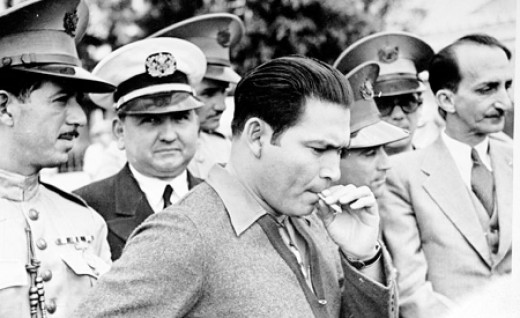
Remember Batista? Fulgencio Who?
Despite unrelenting economic and political pressure from the US government, Castro has been in power so long now that even an old guy like me can't claim to remember the Batista years, which in Marco Rubio's point of view was a glorious golden age of enlightened democracy in Cuba. Perhaps democracy lovers look back to the days of Fulgencio Batista so fondly because he was relegated to the scrap heap of tired old tyrants so long ago that the memory of what happened in Cuba before Fidel took charge has conveniently faded. Despite Rubio's short, selective memory, human rights abuses in Cuba are not anything new and unprecedented.
The reign of Colonel Fulgencio Batista was less a government and more a criminal syndicate. Beginning in 1946 the American Mafia built an empire of casinos in Havana that Batista was a full partner in. Every night Batista's "bagman" went from club to club to collect the 10% tribute money that was his part of the take. During this era Havana became known known as the "Latin Las Vegas," not just because of its proliferation of casinos, but because the same mobsters ran the show in both places.
To reinforce his reign over the nightclub economy windfall, Batista employed heavy-handed repressive tactics that were equally as brutal as those used to keep the Castros in power for 50 odd years. Batista's secret police employed torture and public executions to quiet dissidents, and it is estimated that up to 20,000 people were killed by the Batista gang of thugs. Furthermore, these atrocities were carried out using financial, military and logistical support provided by the United States of America. Americans gave Batista our complete blessing, and then some.
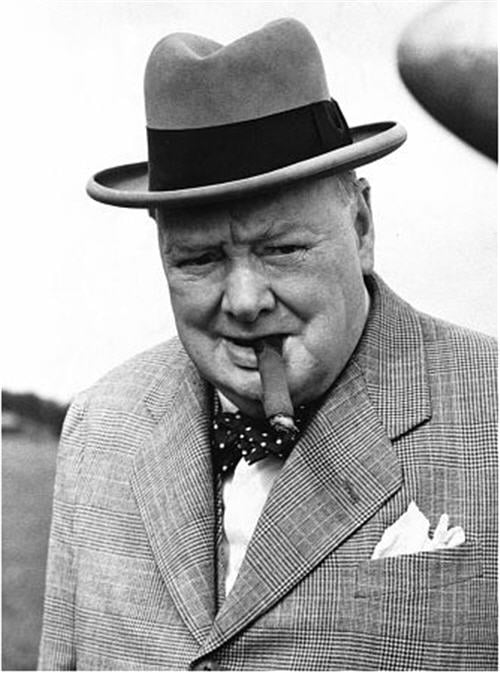
Has the embargo worked? The Castros just keep puffing along
Widespread dissatisfaction with Batista and subsequent revolution brought the current communist regime of Fidel Castro into power. The United States embargo on Cuba began two years after this, on October 19, 1960. The economic embargo currently includes all exports except for food and medicine.
The US Chamber of Commerce estimates that the embargo costs the United States 1.2 billion dollars annually in lost exports, while the Cuban government estimates the island nation suffers to the tune 685 million per year.
The embargo has received mixed reviews. Outside of the United States most opinions on the subject are negative. No US ally other than israel supports the embargo's continuation or believes in its ultimate effectiveness. The economic stranglehold has done nothing to threaten the Castro regime's hold on power, and while Fidel, Raul, and their gang of pro-Castro cronies continue to live in health and comfort, the ordinary Cuban citizen suffers heavily under the embargo's burden. It has been linked to shortages of medical supplies and soap that have resulted in medical crises and increased levels of infectious diseases.
A further detrimental effect of the embargo is the negative attitude it has fostered in the minds of citizens of other countries, which is demonstrated in the quote below:
"The embargo is the perfect example used by anti-Americans everywhere to expose the hypocrisy of a superpower that punishes a small island while cozying to dictators elsewhere."

Oil trumps Cigars - Human rights abuses by US allies
So who are these dictators we are cozying to? If the sins of one Castro & Company have been punished to the point of embargo, why were the equally onerous sins of Batista so completely overlooked? Furthermore, since the United States is friends with plenty of governments across the globe that get a little rough with the citizenry from time to time, can somebody explain why that which is perfectly fine for one set of dictators is grounds for sanctions and embargoes with others?
As an example, here is a partial list of nations the United States is now quite cozy and comfortable with, along with a brief summary of human rights abuses that they have committed.
- Uzbekistan - dissidents are ordered to be shot on sight or boiled alive. But because Uzbekistan provides an alternative supply base to often fickle Pakistan, the US continues to support the brutal government of Islam Karimov.
- Cambodia - political opponents to Prime Minister Hun Sen are routinely killed, but no human rights conditions are placed by the United States on the continuation of military ties or aid.
- Mexico - President Enrique Pena Nieto looked the other way after 43 student protesters in Iguala, Guerrero, were sadistically and callously handed over to drug gangs to be murdered. Pena Nieto has recently been accused of corruption over his 7 million dollar private residence, which was allegedly paid for by a company that was awarded 3.7 billion in private contracts when Pena Nieto was the governor of the state of Mexico. No news on when the US intends to break off relations with Mexico or to impose Cuban style embargoes upon our southern neighbor over rampant corruption and flagrant violations of human rights.
- Bahrain - The ruling Al Khalifa family uses lethal force, torture, and arbitrary detention to crush "Arab Spring" style protests. The presence of the US Navy's Fifth Fleet base in this small Arab nation guarantees a policy of "business as usual" between the United States and this repressive regime.
- Saudi Arabia - The Saudi monarchy holds thousands of dissidents in detention and treats women as second class citizens, imposing severe, medieval-style restrictions upon their freedom. Since the oil must keep pumping, the United States remains mute on these issues. Perhaps if Cuba had oil as well as good cigars, the embargo would have been lifted decades ago.

Is Marco Rubio Right or Just Blowing Smoke?
Even though Marco Rubio's memory doesn't go back any farther than fifty years, and he never proposes embargoes against the equally oppressive Saudis and Uzbeks, he still loudly and boldly denounces the normalization plan as if he is the sole voice of Florida's Cuban community. Polls show, however, that Rubio's opinion is not necessarily representative of his constituency. A survey conducted by HuffPollster revealed that 56% percent of Americans express support for opening up relations with Cuba, while 64% of Floridians favor it. Even Hispanic Americans in Florida, who are overwhelmingly Cuban in heritage, approved of normalizing relations with Cuba by the same 64% margin. Although Marco Rubio would have you believe otherwise, the Cuban community is by no wise monolithic in its assessment of opening relations with the current Havana government, and Rubio's personal long-standing grudge is, in fact, a minority viewpoint. Most Cuban Floridians welcome the opportunity to travel back to the homeland of their fathers and mothers and embrace relatives and friends that an insurmountable wall of dogmatic ideology has separated them from for decades.

Conclusion - Tear down the Tobacco Curtain!
With all the stereotypical references I have made to Cuban cigars here, you are probably thinking that I am writing this article with a stogie firmly planted between my teeth. Perhaps you assume I am only interested in Cuban politics because I am anxiously awaiting my own shipment of Cohibas or Romeo y Julietas to be shipped in from Havana any day now. The truth is that I am not a smoker at all and never have been. I have decided that the only occasions upon which I will smoke a cigar are when I see my name on the cover of a printed book someday, or when my first grandchild is born. When either of these events happen I would prefer that the cigar be Cuban because I would like to think I am smoking the best, even though I wouldn't really know the difference. You could hand me a $1 Swisher Sweet, tell me it was the finest Cuban tobacco, and I would probably believe you.
Anyway, it's time to ease up folks. Is any mind-murdering ideology worth keeping people in perpetual poverty and blocking the flow of goods that a decimated Cuban economy desperately wants to sell; including but certainly not limited to cigars, and we certainly want to buy? Why don't we sit down, have a smoke and talk about it, and maybe we will discover that we can all be friends after all.



